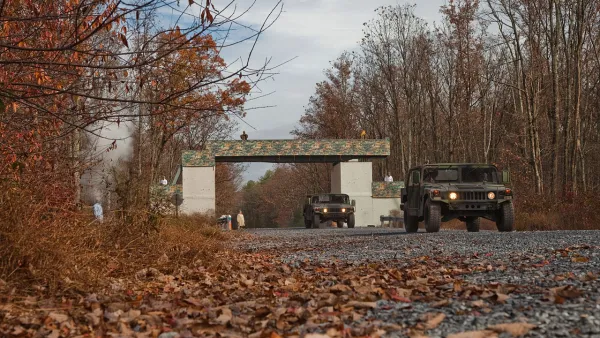During my commute this morning, one of the segments on the piped-in TV news that repeats endlessly on the bus mentioned that the City of Long Beach, California, had decided put new water restrictions in effect due to an impending water shortage. The city is advising residents to refrain from watering their lawns and taking long showers – while urging restaurants to only serve water to diners who request it. According to the Los Angeles Times story on the new restrictions, residents and businesses who don’t heed the call to conserve will receive a warning from officials, while repeat offenders may face a fine.
During my commute this morning, one of the segments on the piped-in TV news that repeats endlessly on the bus mentioned that the City of Long Beach, California, had decided put new water restrictions in effect due to an impending water shortage. The city is advising residents to refrain from watering their lawns and taking long showers – while urging restaurants to only serve water to diners who request it. According to the Los Angeles Times story on the new restrictions, residents and businesses who don't heed the call to conserve will receive a warning from officials, while repeat offenders may face a fine.
Now, water woes are nothing new for Southern California. This semi-arid region was never designed to be home to tens of millions of people – particularly Americans, who rank first in the world in per capita water consumption. A severe drought, combined with new rules about how much water Southern California is allowed siphon off from other parts of the state, have lead to this latest water crisis, and restrictions from other jurisdictions are apparently just around the corner.
But honestly, the whole thing got me thinking how silly it is to ask people to conserve for conservation's sake. Sure, there are lots of good people among us who will follow the recommendations to use less. But, if we are prepared to fine people who don't go along with the call to conserve, why not just simply raise the price of water itself? Basic economics tells us that when faced with higher prices, people will naturally find ways to cutback. In my mind, it might be more effective to link people's consumption (or over consumption) more closely to their pocketbook, rather than to just hope the water police can track down those profligate water users and give them a fine.
To make sure low- and fixed-income people aren't unduly punished, a two-tier pricing system could be put into effect, so that each household was allowed a base level of water use at a lower rate, and any consumption above that was priced at the higher rate.
Of course, it might be that raising water rates may involve some political hurdles (especially for municipal utilities), and it's easier to just ask people to conserve without giving people a more concrete reason to change their behavior. But since this is likely not the last water shortage that the region will face, it might pay to have people start paying more for the privilege of maintaining a green lawn or taking an excessively long shower.

Analysis: Cybertruck Fatality Rate Far Exceeds That of Ford Pinto
The Tesla Cybertruck was recalled seven times last year.

National Parks Layoffs Will Cause Communities to Lose Billions
Thousands of essential park workers were laid off this week, just before the busy spring break season.

Retro-silient?: America’s First “Eco-burb,” The Woodlands Turns 50
A master-planned community north of Houston offers lessons on green infrastructure and resilient design, but falls short of its founder’s lofty affordability and walkability goals.

Test News Post 1
This is a summary

Analysis: Cybertruck Fatality Rate Far Exceeds That of Ford Pinto
The Tesla Cybertruck was recalled seven times last year.

Test News Headline 46
Test for the image on the front page.
Urban Design for Planners 1: Software Tools
This six-course series explores essential urban design concepts using open source software and equips planners with the tools they need to participate fully in the urban design process.
Planning for Universal Design
Learn the tools for implementing Universal Design in planning regulations.
EMC Planning Group, Inc.
Planetizen
Planetizen
Mpact (formerly Rail~Volution)
Great Falls Development Authority, Inc.
HUDs Office of Policy Development and Research
NYU Wagner Graduate School of Public Service




























